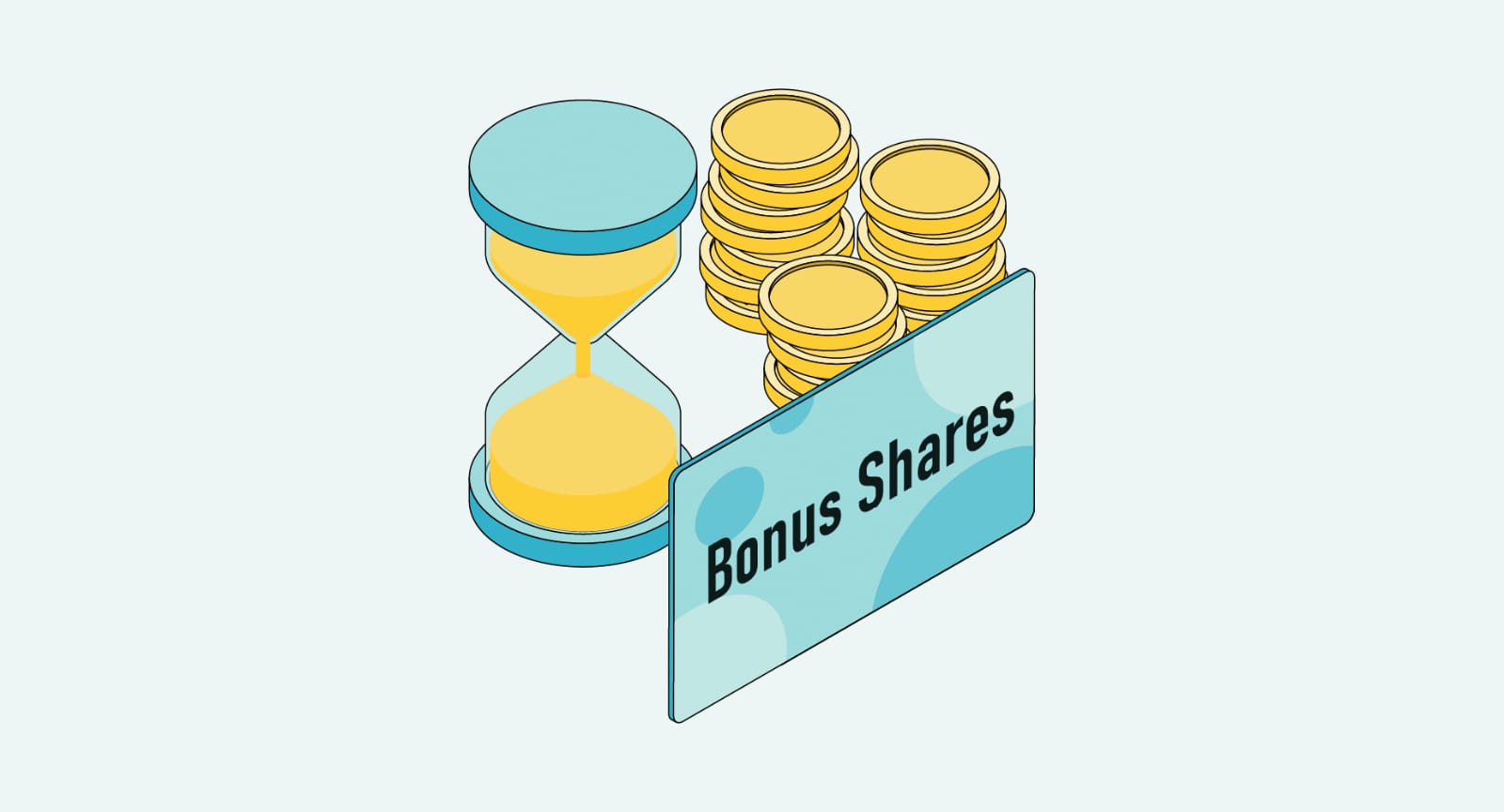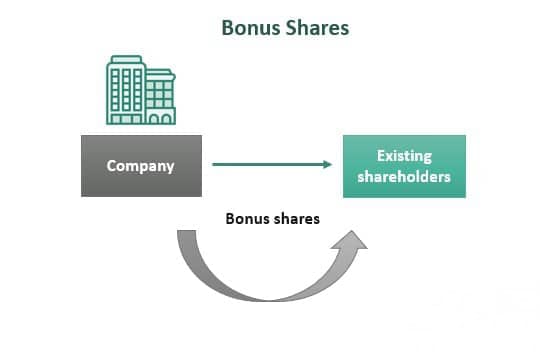Table of Contents:
- Introduction
- What Are Bonus Shares?
- Why Do Companies Issue Bonus Shares?
- How Bonus Shares Work (With Example)
- Types of Bonus Share Issues
- Difference Between Bonus Shares and Stock Splits
- Benefits of Bonus Shares to Shareholders
- Disadvantages of Bonus Shares
- Tax Implications of Bonus Shares in India (2025 Rules)
- Record Date vs. Ex-Bonus Date
- How to Claim Bonus Shares
- Real-World Examples of Bonus Share Issuance (2020-2025)
- Top Indian Companies That Issued Bonus Shares Recently
- Bonus Shares and Their Impact on Stock Prices
- Frequently Asked Questions (FAQs)
- Conclusion

BUY NOW:
1. Introduction
In the world of investing, receiving more shares without spending any additional money might sound like a dream. That dream becomes reality through bonus shares. These shares are a way for companies to reward existing shareholders without distributing cash. In 2025, with India’s capital markets growing rapidly and retail participation increasing, understanding bonus shares is more crucial than ever.
This comprehensive guide will break down everything you need to know about bonus shares — from definition and mechanism to real-world examples and tax rules.
2. What Are Bonus Shares?
Bonus shares are additional shares given to existing shareholders by a company, free of cost. These shares are issued in proportion to the number of shares already held by a shareholder. For example, if a company declares a 1:1 bonus issue, it means the shareholder gets one additional share for every one share they already hold.
Bonus shares are issued from the company’s free reserves or retained earnings. While the total number of shares increases, the total value of the investment remains the same, leading to a proportional decrease in the share price.
3. Why Do Companies Issue Bonus Shares?
Companies may issue bonus shares for several strategic reasons:
- To Reward Shareholders: Bonus shares are a way to distribute profits to shareholders without depleting cash reserves.
- To Improve Liquidity: By increasing the number of shares in circulation, it becomes easier for people to buy and sell the stock.
- Signal of Confidence: Issuing bonus shares often signals that the company has strong financials and expects sustained profits.
- To Bring Down Share Price: A high share price may discourage small investors. Bonus shares reduce the price and make it more affordable.
4. How Bonus Shares Work (With Example)
Let’s understand bonus shares with a simple example:
- Suppose you own 100 shares of Company X.
- The current price of each share is ₹1,000.
- Company X announces a 1:1 bonus.
Before Bonus:
- You own 100 shares worth ₹1,000 each = ₹1,00,000
After Bonus:
- You get 100 additional shares (1:1 ratio)
- Total shares = 200
- New share price = ₹500
- Total value = 200 × ₹500 = ₹1,00,000
So, although you now have more shares, the value of your holding remains the same.
5. Types of Bonus Share Issues
There are mainly two types:
- Fully Paid Bonus Shares: Issued to shareholders without requiring them to pay anything.
- Partly Paid Bonus Shares: Shareholders may be required to pay some amount in the future (rare in India).
In India, fully paid bonus shares are more common.

6. Difference Between Bonus Shares and Stock Splits
| Feature | Bonus Shares | Stock Split |
|---|---|---|
| Nature | New shares issued | Existing shares split |
| Objective | Reward shareholders | Increase liquidity |
| Face Value | Remains the same | Reduced |
| Accounting | From reserves | No change in reserves |
| Example | 1:1 issue = Double shares | 1:2 split = Double shares with half face value |
7. Benefits of Bonus Shares to Shareholders
- No Cost: Investors get more shares without paying anything.
- Improved Liquidity: Smaller share prices encourage more buying/selling.
- Psychological Edge: More shares feel like more wealth.
- Long-Term Growth: If company performs well, value increases with time.
- Dividend Potential: More shares mean more dividend in absolute terms if declared per share.
8. Disadvantages of Bonus Shares
- No Immediate Cash Benefit: Unlike dividends, bonus shares don’t put money in your hand.
- Dilution of EPS: As the number of shares increases, earnings per share reduce.
- Tax Confusion: May confuse new investors about cost basis.
- Possible Short-Term Volatility: Share prices may adjust, causing market reactions.
9. Tax Implications of Bonus Shares in India (2025 Rules)
Key Points:
- No tax at issuance: Bonus shares are not taxed when received.
- Capital Gains Tax: Tax applies when shares are sold.
- Cost of Acquisition: Considered zero for bonus shares issued before 01-Apr-2023.
- For newer shares, indexed acquisition cost may be used depending on holding period.
- Holding Period: More than 12 months = long-term capital gain (LTCG), taxed at 10% above ₹1 lakh.
Note: Always consult a tax advisor as rules may update.
10. Record Date vs. Ex-Bonus Date
- Record Date: Date on which you must be a shareholder to receive bonus shares.
- Ex-Bonus Date: Usually 1-2 days before record date. If you buy on or after this date, you will NOT get bonus shares.
Tip: Buy shares at least 2-3 days before the record date to be eligible.
11. How to Claim Bonus Shares
You don’t need to apply. They are automatically credited to your demat account:
- Check your demat account within 15-30 days post-record date.
- If not received, contact your broker or company registrar.
12. Real-World Examples of Bonus Share Issuance (2020-2025)
- Infosys (2022): 1:1 bonus issue
- Wipro (2021): 1:3 bonus issue
- TCS (2018): 1:1 bonus issue
- Hindustan Zinc (2023): 1:3 bonus issue
These examples show that top companies often issue bonus shares as part of their shareholder-friendly strategy.

13. Top Indian Companies That Issued Bonus Shares Recently
- Hindustan Aeronautics Limited (HAL)
- IRCTC
- BPCL
- TVS Motors
- SBI Life
You can find updated bonus declarations on NSE/BSE websites.
14. Bonus Shares and Their Impact on Stock Prices
- Price Adjustment: Share price reduces proportionally.
- Increased Participation: Lower price brings in new investors.
- Positive Sentiment: Often viewed as a good sign of profitability.
- Temporary Volatility: Sometimes investors sell bonus shares quickly to book profit.
15. Frequently Asked Questions (FAQs)
Q1. Are bonus shares good or bad?
Good for long-term investors as it shows company growth and gives more shares.
Q2. Can I sell bonus shares immediately?
Yes, once they are credited to your demat account.
Q3. Is there any tax on bonus shares?
No tax while receiving, but applicable at the time of sale as capital gains.
Q4. Who is eligible for bonus shares?
Shareholders who own the stock before the ex-bonus date.
Q5. Will my total investment value increase?
Not immediately. Share price adjusts, so total value remains the same.
16. Conclusion
Bonus shares are an excellent tool for companies to reward loyal investors and manage stock prices. They don’t provide instant cash like dividends but offer long-term benefits in the form of increased holdings. As a smart investor in 2025, understanding bonus shares can help you make better portfolio decisions.
Whether you’re a beginner or experienced investor, always look beyond the headline. Study the company’s fundamentals, future growth, and financial stability before reacting to a bonus share announcement.
Stay informed, stay invested!
Disclaimer: This content is for educational purposes only and not financial advice. Please consult a financial advisor before making investment decisions.

